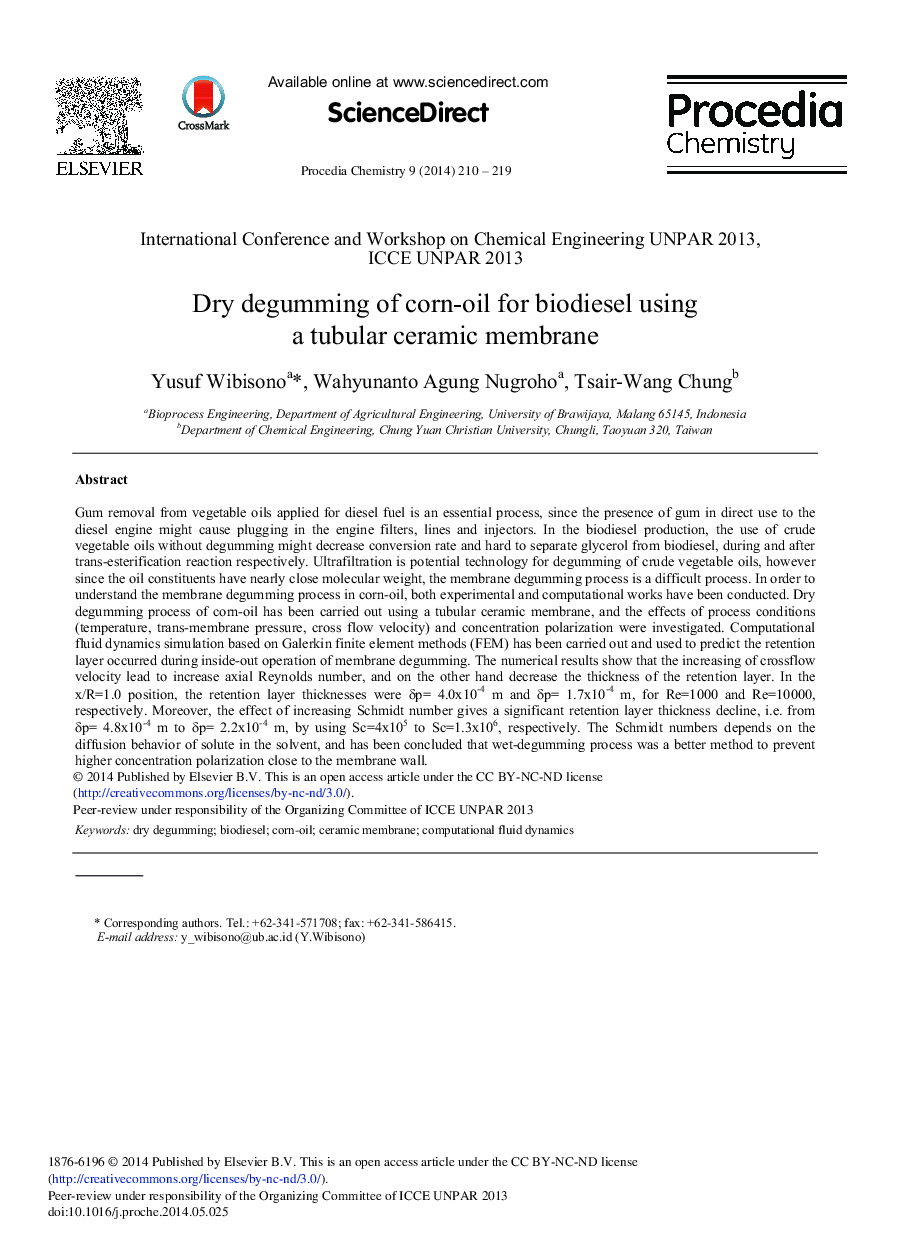| Article ID | Journal | Published Year | Pages | File Type |
|---|---|---|---|---|
| 240033 | Procedia Chemistry | 2014 | 10 Pages |
Gum removal from vegetable oils applied for diesel fuel is an essential process, since the presence of gum in direct use to the diesel engine might cause plugging in the engine filters, lines and injectors. In the biodiesel production, the use of crude vegetable oils without degumming might decrease conversion rate and hard to separate glycerol from biodiesel, during and after trans-esterification reaction respectively. Ultrafiltration is potential technology for degumming of crude vegetable oils, however since the oil constituents have nearly close molecular weight, the membrane degumming process is a difficult process. In order to understand the membrane degumming process in corn-oil, both experimental and computational works have been conducted. Dry degumming process of corn-oil has been carried out using a tubular ceramic membrane, and the effects of process conditions (temperature, trans-membrane pressure, cross flow velocity) and concentration polarization were investigated. Computational fluid dynamics simulation based on Galerkin finite element methods (FEM) has been carried out and used to predict the retention layer occurred during inside-out operation of membrane degumming. The numerical results show that the increasing of crossflow velocity lead to increase axial Reynolds number, and on the other hand decrease the thickness of the retention layer. In the x/R=1.0 position, the retention layer thicknesses were δp= 4.0x10-4 m and δp= 1.7x10-4 m, for Re=1000 and Re=10000, respectively. Moreover, the effect of increasing Schmidt number gives a significant retention layer thickness decline, i.e. from δp= 4.8x10-4 m to δp= 2.2x10-4 m, by using Sc=4x105 to Sc=1.3x106, respectively. The Schmidt numbers depends on the diffusion behavior of solute in the solvent, and has been concluded that wet-degumming process was a better method to prevent higher concentration polarization close to the membrane wall.
